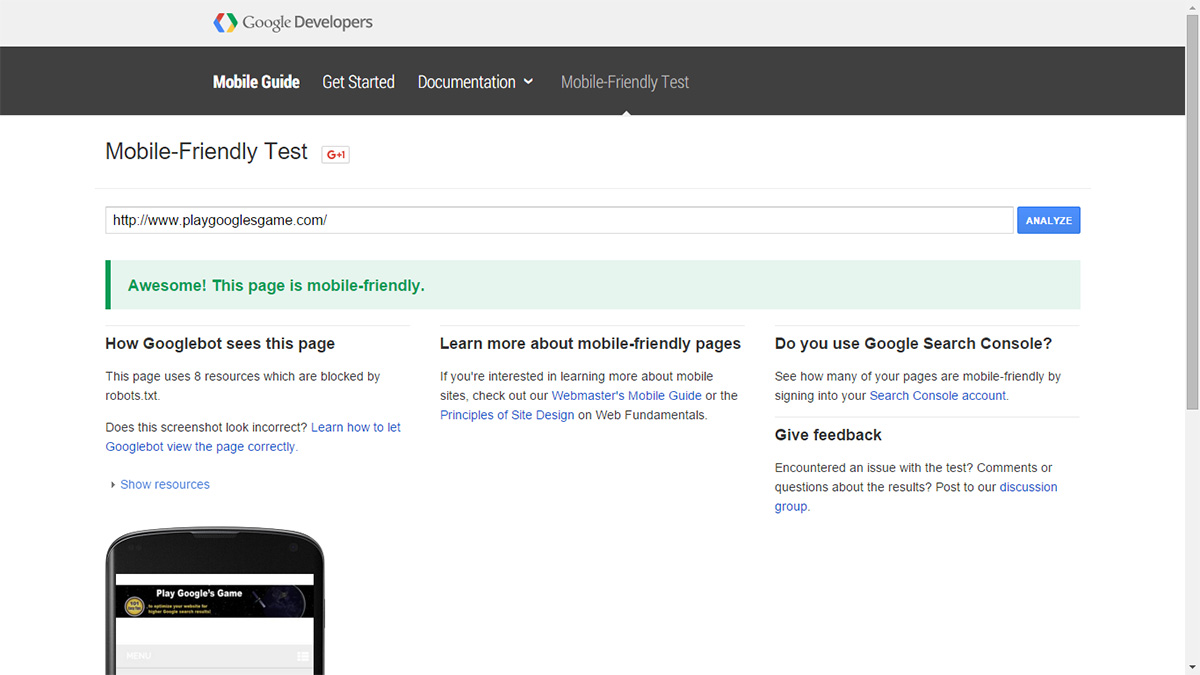Is Your Website Mobile Friendly?
Keep in mind that over half of searches are done on mobile devices now. That means that standard page layout is turned on its head. You need to think about how your site looks when users are scrolling down with their thumb.
Google knows that over half of the searches are performed on a mobile device. They have been warning us for years to be mobile friendly. More importantly, we need to accommodate over half of our customers!
In 2015 Google came out and told website owners to get mobile friendly or be penalized. They have never made a statement like this before—so you better pay attention.
This is the first time in history that Google has pre-announced an upcoming algorithm change and they are calling it “significant,” which got our attention. Google is even giving a website address where you can check to see if your website is mobile friendly: Google Mobile-Friendly Test website
Google says a mobile friendly website meets the following criteria as detected by Googlebot:
• Avoids software that is not common on mobile devices, like Flash
• Uses text that is readable without zooming
• Sizes content to the screen so users don’t have to scroll horizontally or zoom
• Places links far enough apart so that the correct one can be easily tapped
Many mobile friendly websites use a Responsive Design, which means the webpage responds, or fits the screen of the device that it is shown on.
Accelerated Mobile Pages
Update 12.09.15 This is the mantra of the AMP Project as we seek to make the web fast and compelling.
Google announced Accelerated Mobile Pages, a new open source project, which is basically its answer to Facebook’s Instant Articles. Like Instant Articles, the purpose of the project is to enable web pages to load more quickly on mobile devices. See the Google AMP Project Blog
Good News – WordPress will support all publishers that wish to enable AMP pages beginning in January. From the world of analytics, comScore, Chartbeat, Google Analytics, and Parse.ly will have AMP support in their tools by late February.

